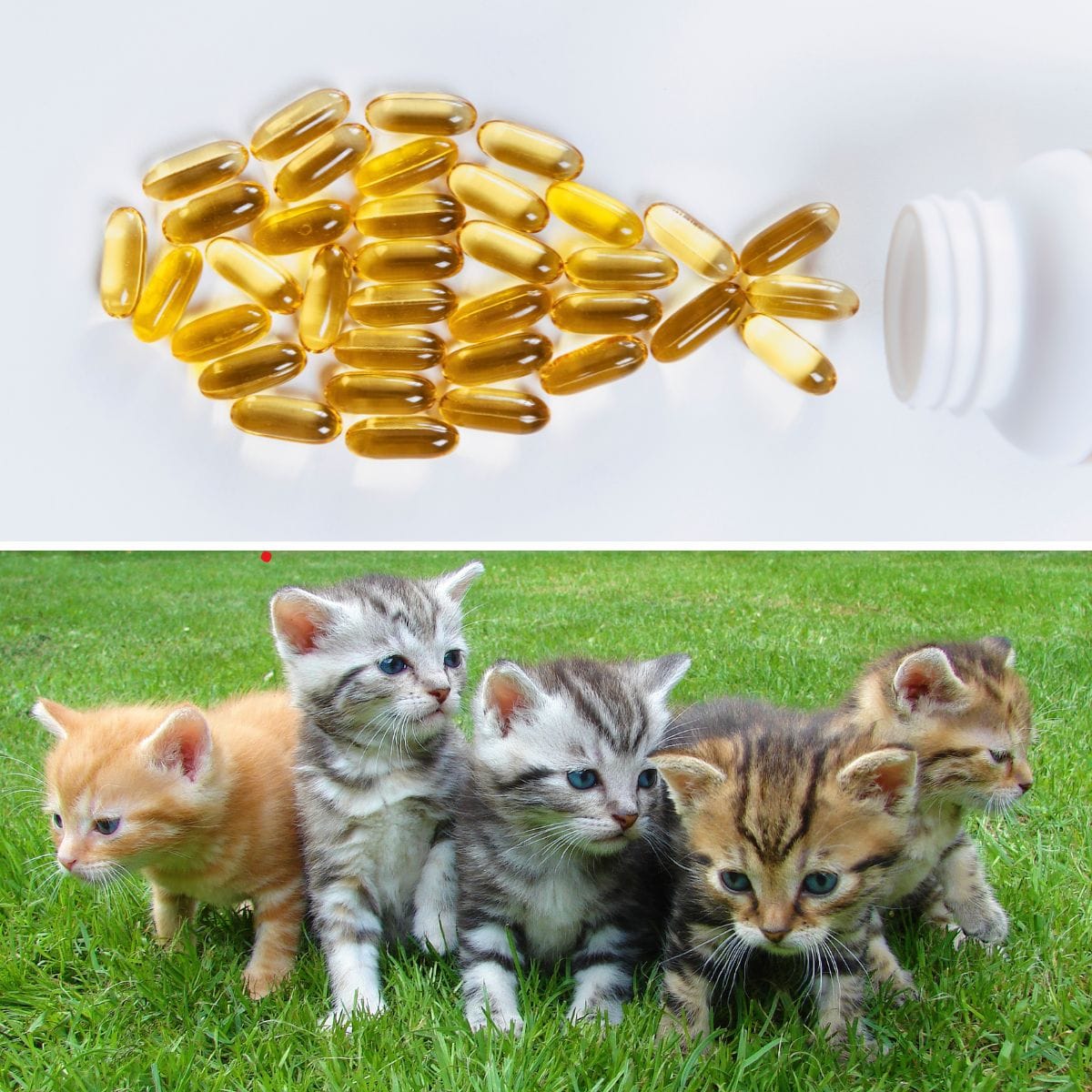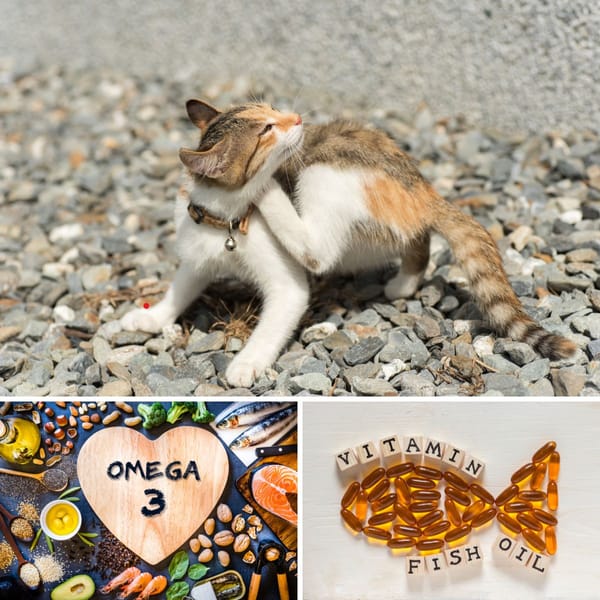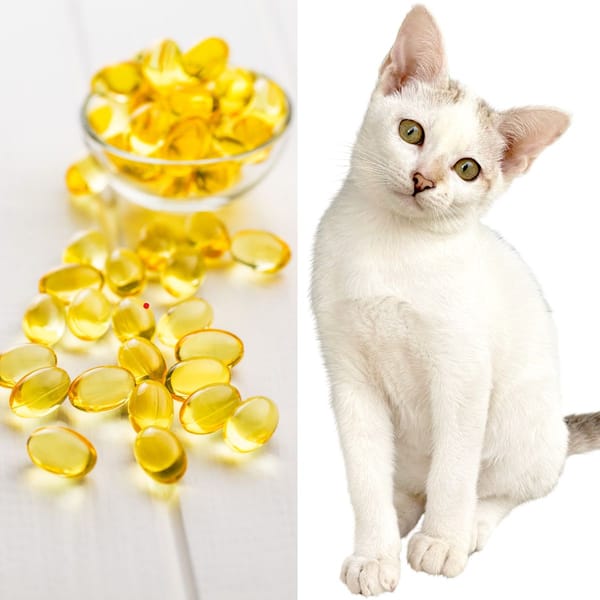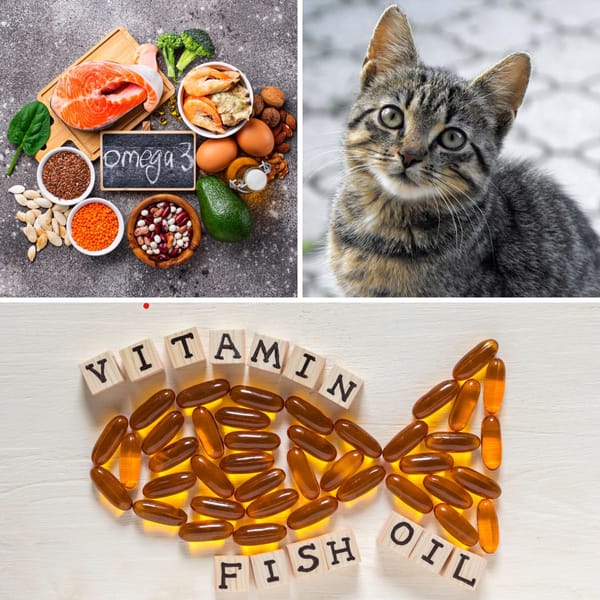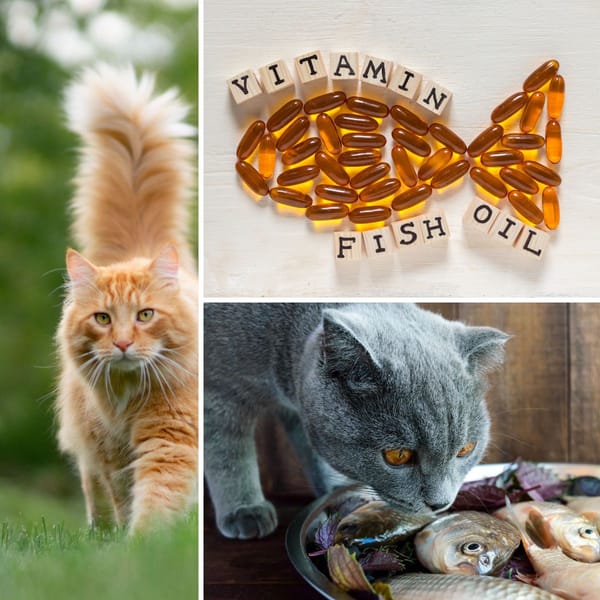Omega 3 fatty acids are well-known for their health benefits in humans, but what about our feline friends? As a pet owner, you might wonder, "Can I give omega 3 to my cat?" The answer is yes, but there's a lot to consider before adding these supplements to your cat's diet. This comprehensive guide will explore the benefits, sources, and precautions of omega 3 for cats.
Key Takeaways:
- Omega 3 fatty acids can be beneficial for your cat's overall health, including skin, joint, and cognitive function.
- It's important to choose the right type of omega 3 and the correct dosage based on your cat's body weight and health conditions.
- Consult with a vet before starting any new supplement to ensure it's safe and beneficial for your cat's specific needs.
Understanding Omega 3 Fatty Acids
Omega 3 fatty acids are essential fatty acids that play a crucial role in the body's cell membranes. They are involved in the inflammatory response and are necessary for optimal health. For cats, omega 3s can contribute to healthy skin, joint health, and cognitive function. These fatty acids are not produced by the body and must be obtained through diet.
The Benefits of Omega 3 for Cats
Incorporating omega 3 into your cat's diet can offer numerous health benefits. These include a shiny coat, reduced inflammation that can exacerbate joint pain, and support for cardiovascular health. Omega 3 fatty acids, such as eicosapentaenoic acid (EPA) and docosahexaenoic acid (DHA), are also known to decrease triglyceride levels and improve overall well-being.
Sources of Omega 3 for Cats
When it comes to providing omega 3 for your cat, there are several sources to consider. Fish oil supplements are a popular choice, as they are rich in EPA and DHA. Marine sources like salmon and krill oil are also beneficial. However, it's important to be cautious with vegetable oils, as they contain alpha-linolenic acid, which cats cannot convert efficiently into EPA and DHA.
How to Introduce Omega 3 into Your Cat's Diet
To add omega 3 to your cat's diet, you can mix fish oil supplements into their wet food or opt for pet foods that already contain these nutrients. It's essential to introduce any new supplement gradually and monitor your cat's reaction to avoid gastrointestinal or bleeding disorders.
The Right Dosage of Omega 3 for Cats
Determining the correct dosage of omega 3 for your cat is critical. The dosage should be based on your cat's body weight and specific health needs. Over-supplementation can lead to health issues, so it's best to consult with a vet for a recommended dosage.
Omega 3 for Skin Health in Cats
Omega 3 fatty acids can significantly improve your cat's skin health. They help maintain the skin's barrier function and can alleviate dry, flaky skin. For cats with skin conditions, omega 3 can have anti-inflammatory effects that soothe irritation.
Joint Health and Omega 3
As cats age, joint health becomes a concern. Omega 3 fatty acids can help maintain joint health by reducing inflammation and potentially helping to manage conditions like arthritis. This can be particularly beneficial for older cats in their golden years.
Omega 3's Role in Feline Allergies
Omega 3 fatty acids aren't just beneficial for your cat's physical health; they can also play a significant role in managing allergies. Many pet owners have reported that adding a fish oil supplement to their cat's diet has helped reduce the symptoms associated with allergies. This is due to the anti-inflammatory effects of omega 3s, which can help to soothe irritated skin and reduce allergic reactions. By incorporating omega-3 fatty acids into your cat's food, you may notice a decrease in scratching and an improvement in your cat's skin condition.
However, it's important to approach this as part of a broader allergy management plan. While omega 3 supplements can support your cat's immune system, they are not a cure-all. It's crucial to identify the allergens causing your cat's discomfort and to consult with your vet to develop a comprehensive approach. This may include dietary changes, medication, or even environmental adjustments to ensure your cat's overall well-being and comfort.
Omega 3's Influence on a Cat's Immune System
Omega 3 fatty acids are not just beneficial for a cat's coat and joints; they play a crucial role in bolstering the cat's immune system. These essential fats, particularly eicosapentaenoic acid (EPA) and docosahexaenoic acid (DHA), are known for their anti-inflammatory effects, which can help regulate the immune response. For pet owners wondering, "Can I give omega 3 to my cat for immune health?" the answer is a resounding yes. Including omega 3 in your cat's diet can aid in creating a robust defense against common illnesses, ensuring your feline friend's overall well-being.
While many pet foods claim to include omega-3 fatty acids, it's important to check the source and quantity to ensure your cat is getting the right amount. Omega 3 fish oil supplements are often vet-recommended to guarantee an adequate intake. These supplements can be particularly beneficial for cats with autoimmune conditions or those recovering from sickness. By supporting the cat's immune system, omega 3s can contribute significantly to maintaining your pet's health and preventing future ailments.
The Difference Between Omega 3 and Other Fatty Acids
When considering adding omega 3 to your cat's diet, it's essential to understand the difference between these fatty acids and others like omega 6s and linoleic acid. While omega-6 fatty acids, such as linoleic acid and alpha-linolenic acid, are also essential for your cat's health, the balance between omega 3 and omega 6 is key. Most pets, including cats, often receive an excess of omega 6s through their diet, which can lead to inflammation. On the other hand, omega 3s have anti-inflammatory effects that can counteract this imbalance.
Ensuring your cat's food has the right ratio of omega 3 to omega 6 is crucial for your cat's skin health, joint function, and overall well-being. Omega 3 fatty acids, particularly those found in fish oil, can help correct this balance and promote a healthier cat's system. It's always best to consult with your vet to determine the appropriate types and amounts of fatty acids for your cat's individual needs. This way, you can tailor your cat's diet for optimal health benefits.
Incorporating Omega 3 in Senior Cats' Diets
As cats age, their dietary needs can change, and omega-3 fatty acids become even more critical for maintaining their health. Senior cats can benefit from the same benefits of omega 3s as younger felines, such as joint support and cognitive function. A vet-recommended omega-3 fish oil supplement can be a valuable addition to your aging cat's diet, helping to keep them agile and mentally sharp. It's essential to consider the specific needs of your senior pet when choosing the right supplement.
Adding omega 3s to a senior cat's system can also support their heart health and potentially slow the progression of chronic kidney disease, which is common in older cats. The anti-inflammatory effects of omega-3 fatty acids can help reduce the stress on these vital organs. When introducing omega 3s to your senior cat's food, start with a small dosage and monitor their response closely. Adjustments can be made based on their individual health requirements and your vet's guidance.
Cognitive Function and Omega 3
Omega 3 is known to support brain health and cognitive function. This is especially important for kittens, as DHA is vital for brain development. In older cats, omega 3 can help maintain brain health and cognitive function, contributing to a better quality of life.
Omega 3 for Heart Health in Cats
Heart disease is a common concern for many pet owners. Omega 3 fatty acids can support heart health by helping to reduce inflammation and decrease the risk of blood clots. This makes them a valuable addition to the diet of cats with cardiovascular concerns.
Omega 3 and Kidney Disease in Cats
Kidney disease is a prevalent issue in cats. Omega 3 can benefit cats with kidney disease by helping to reduce inflammation and protect kidney function. However, it's crucial to consult with a vet to ensure that omega-3 supplements are appropriate for cats with this condition.
Potential Risks and Side Effects
While omega-3 supplements can offer many benefits, there are potential risks and side effects to be aware of. High doses can cause gastrointestinal upset or interfere with blood clotting. It's also important to be aware of the quality of supplements, as some may contain contaminants or be damaged by high temperatures during processing.
Choosing the Right Omega 3 Supplement
When selecting an omega-3 supplement for your cat, look for vet-recommended brands that specify they are safe for cats. The supplement should be free from contaminants and processed at low temperatures to preserve the integrity of the fatty acids.
How to Store Omega 3 Supplements
Proper storage of omega-3 supplements is essential to prevent spoilage. Fish oils can oxidize when exposed to air, light, or high temperatures, so they should be stored in a cool, dark place and used before the expiration date.
Monitoring Your Cat's Response to Omega 3
After introducing omega 3 to your cat's diet, it's important to monitor their response. Look for positive changes in skin and coat health, as well as any signs of adverse reactions. Adjustments to the dosage or type of supplement may be necessary based on your cat's individual response.
When to Consult Your Vet
Before starting your cat on an omega supplement, it's always best to consult with your vet. They can provide guidance on the appropriate type and amount of omega-3 for your cat's specific health needs and conditions.
Summary
Omega 3 fatty acids can be a valuable addition to your cat's diet, offering benefits for skin health, joint health, cognitive function, and more. It's important to choose the right supplement, determine the correct dosage, and consult with a vet to ensure the best outcomes for your cat's health. With the right approach, omega 3 can contribute to your cat's overall well-being and help them thrive throughout their life.
FAQ Section
Q: Can I give human omega-3 supplements to my cat? A: It's not recommended to give human omega 3 supplements to cats as the dosage and formulation may not be suitable for them. Always choose supplements specifically designed for cats.
Q: How long does it take to see the benefits of omega-3 in cats? A: The time it takes to see the benefits of omega 3 can vary. Some improvements, such as a shinier coat, may be noticeable within a few weeks, while other health benefits may take longer to manifest.
Q: Can omega-3 supplements replace a balanced diet for my cat? A: Omega 3 supplements should not replace a balanced diet. They are intended to complement your cat's food and ensure they receive the necessary nutrients for optimal health.

